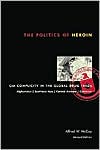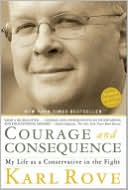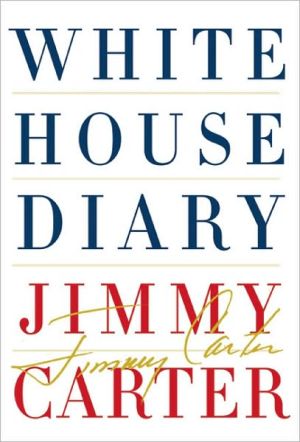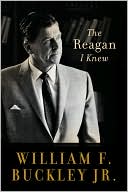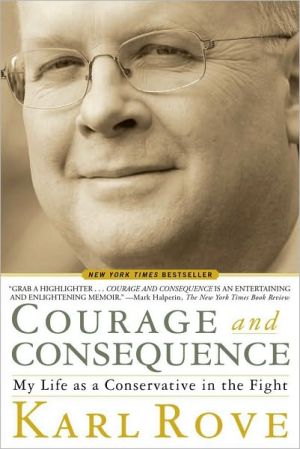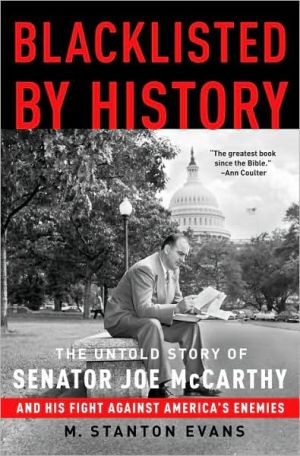The Politics of Heroin: CIA Complicity in the Global Drug Trade
The first book to prove CIA and U.S. government complicity in global drug trafficking, The Politics of Heroin includes meticulous documentation of dishonesty and dirty dealings at the highest levels from the Cold War until today. Maintaining a global perspective, this groundbreaking study details the mechanics of drug trafficking in Asia, Europe, the Middle East, and South and Central America. New chapters detail U.S. involvement in the narcotics trade in Afghanistan and Pakistan before and...
Search in google:
The original 1972 edition of this book, which focused almost exclusively on Southeast Asia, has long been recognized as a classic of its kind by observers of U.S. foreign policy. In this new edition, McCoy (Southeast Asian history, U. of Wisconsin at Madison) has moved beyond his original intent of simply exposing the CIA's role in politically protecting drug lords in order to advance their covert operations objectives. He now attempts to explain the wider political and economic dynamics of the global trade in narcotics, paying as much attention to the failed policies of drug prohibition as to the continuing habit of the U.S. government to work with drug traffickers when it finds it convenient for its geostrategic or other political interests. Annotation ©2003 Book News, Inc., Portland, OR Publishers Weekly Nearly 20 years ago, McCoy wrote The Politics of Heroin in Southeast Asia , which stirred up considerable controversy, alleging that the CIA was intimately involved in the Vietnamese opium trade. In the current volume, a substantially updated and longer work, he argues that the situation basically hasn't changed over the past two decades; however the numbers have gotten bigger. McCoy writes, ``Although the drug pandemic of the 1980s had complex causes, the growth in global heroin supply could be traced in large part to two key aspects of U.S. policy: the failure of the DEA's interdiction efforts and the CIA's covert operations.'' He readily admits that the CIA's role in the heroin trade was an ``inadvertent'' byproduct of ``its cold war tactics,'' but he limns convincingly the path by which the agency and its forebears helped Corsican and Sicilian mobsters reestablish the heroin trade after WW II and, most recently, ``transformed southern Asia from a self-contained opium zone into a major supplier of heroin.'' Scrupulously documented, almost numbingly so at times, this is a valuable corrective to the misinformation being peddled by anti-drug zealots on both sides of the aisle. First serial to the Progressive. (July)
\ Publishers Weekly - Publisher's Weekly\ Nearly 20 years ago, McCoy wrote The Politics of Heroin in Southeast Asia , which stirred up considerable controversy, alleging that the CIA was intimately involved in the Vietnamese opium trade. In the current volume, a substantially updated and longer work, he argues that the situation basically hasn't changed over the past two decades; however the numbers have gotten bigger. McCoy writes, ``Although the drug pandemic of the 1980s had complex causes, the growth in global heroin supply could be traced in large part to two key aspects of U.S. policy: the failure of the DEA's interdiction efforts and the CIA's covert operations.'' He readily admits that the CIA's role in the heroin trade was an ``inadvertent'' byproduct of ``its cold war tactics,'' but he limns convincingly the path by which the agency and its forebears helped Corsican and Sicilian mobsters reestablish the heroin trade after WW II and, most recently, ``transformed southern Asia from a self-contained opium zone into a major supplier of heroin.'' Scrupulously documented, almost numbingly so at times, this is a valuable corrective to the misinformation being peddled by anti-drug zealots on both sides of the aisle. First serial to the Progressive. (July)\ \ \ \ \ Library JournalIt seems that the American government has learned nothing from its war on drugs. In 1972, the CIA attempted to suppress McCoy's classic work, The Politics of Heroin in Southeast Asia ( LJ 11/15/72 ) , which charged CIA complicity in the narcotics trade as part of its cold war tactics. Now, this revised and expanded edition, incorporating 20 years of research, discusses in almost overwhelming detail how U.S. drug policies and actions in the Third World has created ``America's heroin plague.'' McCoy notes that every attempt at interdiction has only resulted in the expansion of both the production and consumption of drugs. He also charges that 40 years of CIA protection of Asian drug traffickers and active participation in the transport of opium and heroin has undermined U.S. anti-drug efforts. A massive work that raises serious questions. For larger public and academic libraries.-- Wilda Williams, ``Library Journal''\ \
